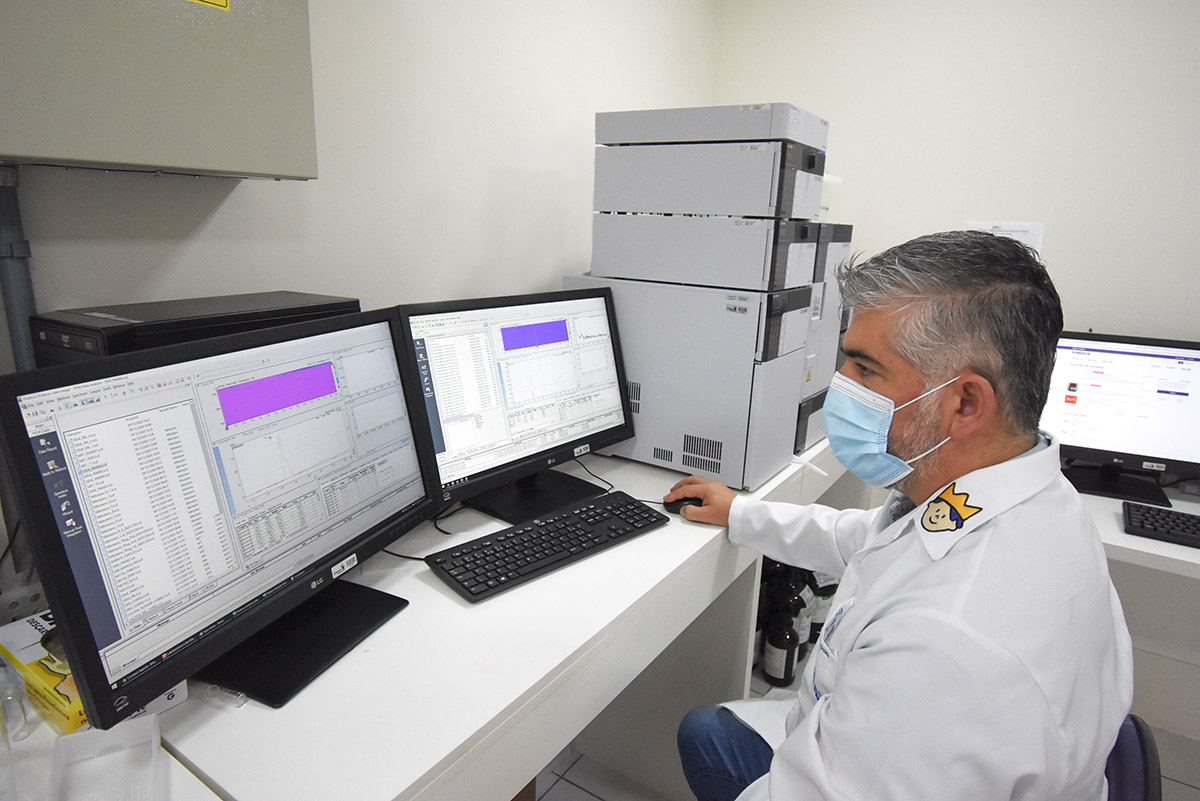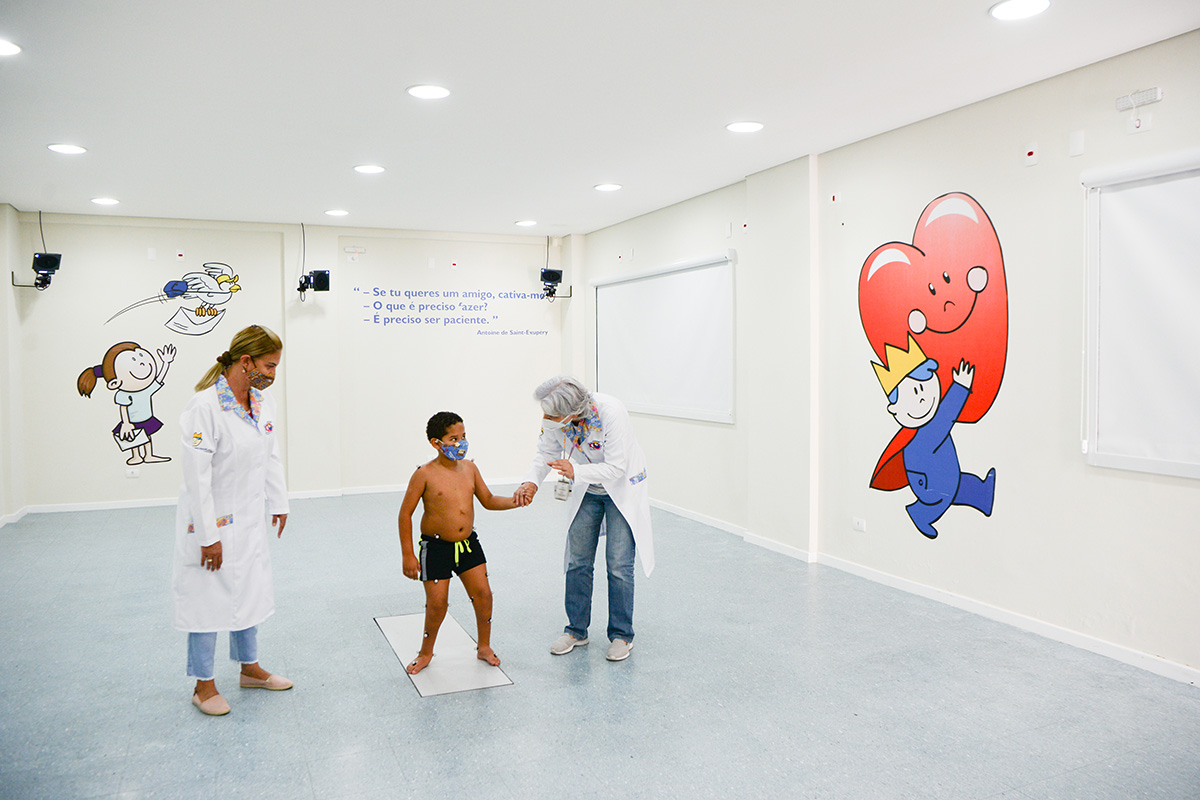Learnings brought by the COVID-19 pandemic help to reduce mortality rate
Mortality rate dropped from 1.6%, in the first year of the pandemic, to 0.1% in the beginning of the third year. New drugs and equipment are also among the great learnings
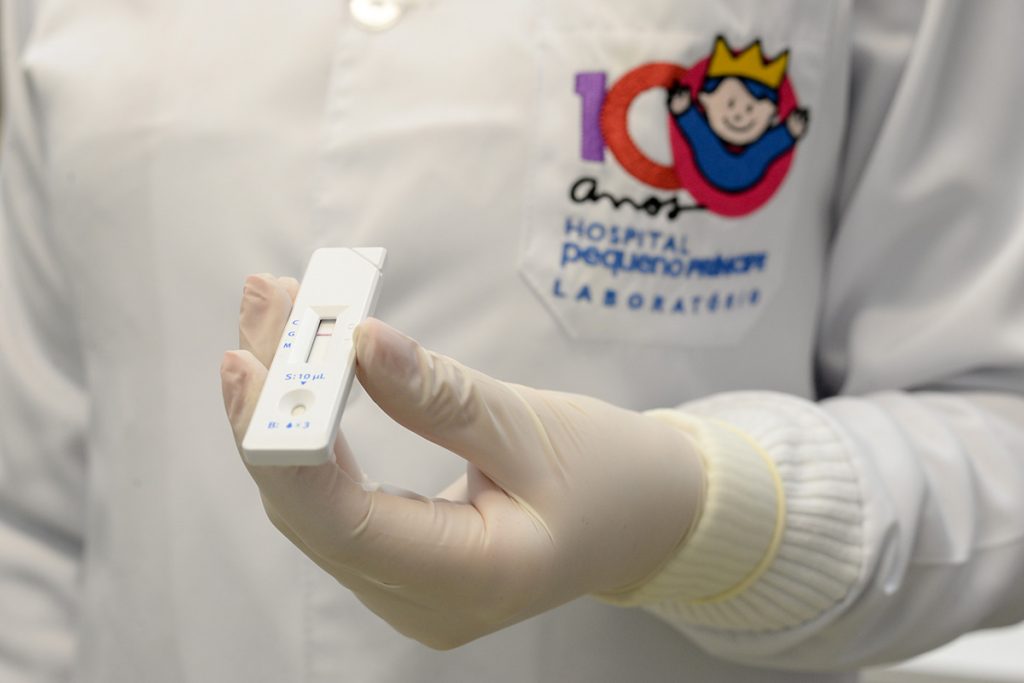
April 4th will mark two years since Pequeno Príncipe Hospital confirmed the first positive case of COVID-19. Until March 10, 2022, in 23 months of pandemic, there were 2,800 confirmed cases, 500 hospitalizations, 126 patients who needed ICU and 16 deaths.
According to the assistant technical director of the Pequeno Príncipe, Victor Horácio de Souza Costa Junior, who is the person in charge of the care of patients with COVID-19, this pandemic brought many important learnings related to patient’s care and we can see the reflections of it in our daily performance data. “The mortality rate dropped significantly. In 2020, the rate was 1.6%. In 2021, it dropped to 0.8%, and in this third year, which started with an explosion of cases, our mortality is 0.1%. It shows that, as seen in the rest of the world, we learnt a lot about this disease and these learnings are reflecting in our performance, with better practices and better results,” highlights.
Among the changes seen in direct care, we can highlight the substitution of some drugs. “In the beginning, we thought the use of immunoglobulins was helpful in the treatments, but along the way we realized it didn’t bring any significant improvement of the patient’s condition. On the other hand, we started using tocilizumab, a modern anti-inflammatory drug, and we noticed a good improvement in the patients. This drug has been incorporated into our protocol of care for critically ill patients,” explains the physician.
Another learning was regarding myocarditis. A high number of the patients who presented a severe COVID-19 condition developed the disease, that is why the Hospital formalized an outpatient facility to assist the children with cardiac sequelae. The new structure served around 300 children who are being followed by the team.
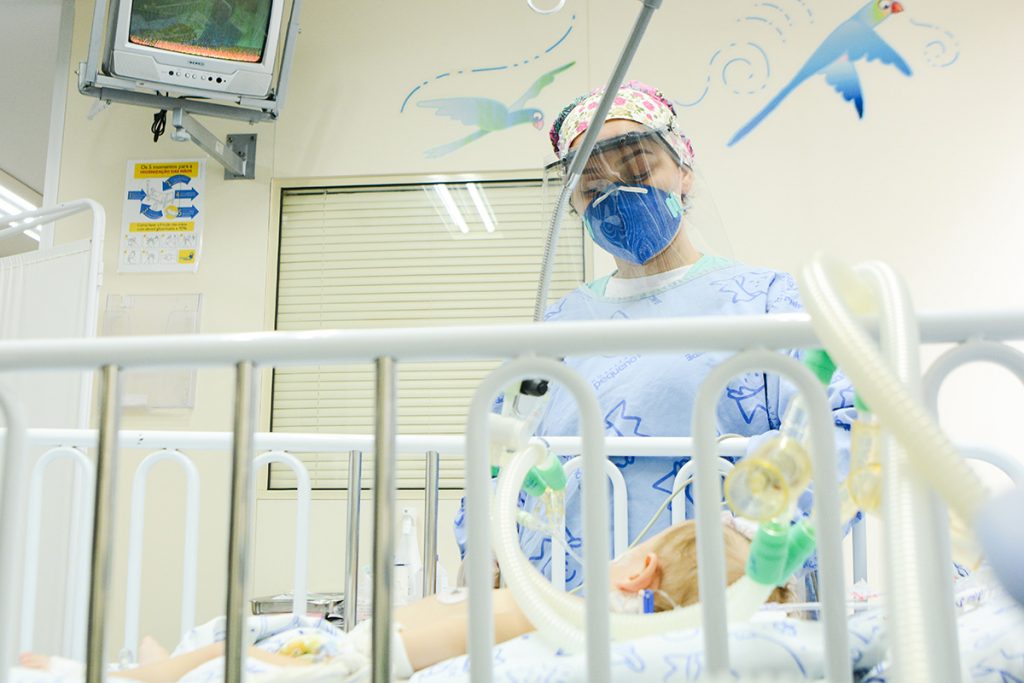
Nurse Flávia Marafigo Vecina, coordinator of the crytical units of Pequeno Príncipe Hospital points out some other important learnings brought by the sanitary crisis. “The first great learning was the intensive use of Personal Protective Equipment (PPE). We already used them, but the pandemic reinforced the need and the importance of the constant use. Another milestone was to being able to get closer to the families. We could bring the family inside the COVID-19 ICU in a moment when the recommendation was to isolate even the children. This is a gesture of humanization that has the power to calm down the children and the family, preserving the well-being of all the parties involved and helping the recovery process,” she says.
Regarding patient’s care, Flávia recalls that another important learning was the use of the full-face masks in patients who needed noninvasive ventilation. The equipment provides respiratory support to children preventing, in most cases, the need of intubation. “Making use of the masks reduces the risk of trachea injury and pulmonary sequelae, thus contributing to bring more comfort and reducing the trauma that an intubation can cause,” explains the nursing assistant director, Junia Selma de Freitas. “Another benefit is the reduction in the need for sedation, all without compromising the patient’s ventilation,” she adds.
The masks needed to be imported, because, in Brazil, there were no availability of the equipment adapted for the children’s use. Initially used exclusively in patients with COVID-19, today the masks are also helping patients from other services of the Hospital.
Pediatric Multisystem Inflammatory Syndrome (PMIS)
One of the severe conditions faced by the children contaminated with the coronavirus is the Pediatric Multisystem Inflammatory Syndrome (PMIS). “This is an extremely lethal syndrome, because it affects several body systems, with respiratory, cardiac, neurological, renal, gastrointestinal, and hematological manifestations, hypotension, cardiac shock and even skin problems,” details the physician Costa Junior.
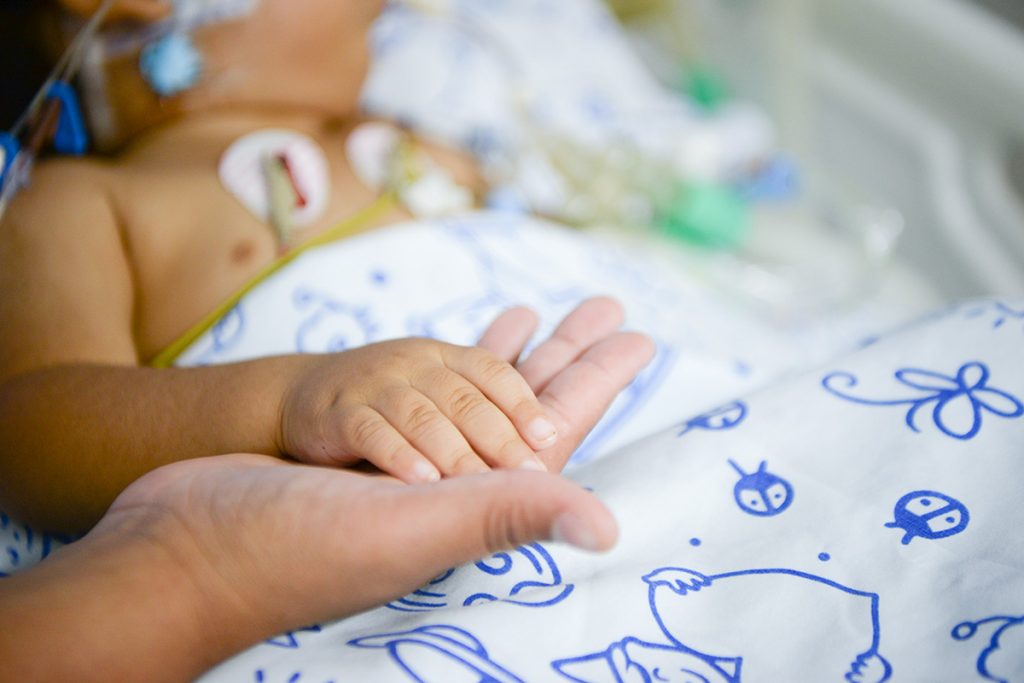
In these two years of pandemic at Pequeno Príncipe, we assisted 23 patients with PMIS. In average, these patients needed 31.6 days of hospitalization, of which eight were in ICU. Three patients died because of complications brought by the syndrome. Interesting to note that only six out of 23 patients with the Pediatric Multisystem Inflammatory Syndrome had comorbidities. “It means that this is being the most severe condition caused by the virus and it also affects healthy children,” highlights the doctor.
Vaccines save lives
After almost two years of pandemic, Pequeno Príncipe specialists are unanimous to affirm that the greatest learnings until now is the power the vaccines have while protecting lives. “There is no vaccine for diseases that are not lethal. Families must realize the importance of taking their children to get the twos shots of the vaccines, trusting in science and in what pediatricians recommend,” Costa Junior says.
“If you take a look at the adult population, whose vaccination is more advanced in Brazil, we can see that the new wave caused by the omicron variant increased the number of positive cases, but it didn’t reflect in numbers of deaths. This protection reached by the adults must also be offered to our boys and girls,” concludes the physician.
Click below and check how were these first two years of the COVID-19 pandemic.
More
Equipment enabled by the funds raised at the Pequeno Príncipe Gala supports research and healthcare activities
Liquid chromatography allows researchers to monitor the level of drugs in patient’s blood, thus helping to choose more accurate treatment
Pequeno Príncipe launches a high technology service to identify mobility problems
Exams conducted at the Computerized Gait Laboratory enables accurate diagnosis and treatment; the service is the only one in Paraná State to perform clinical assessment


